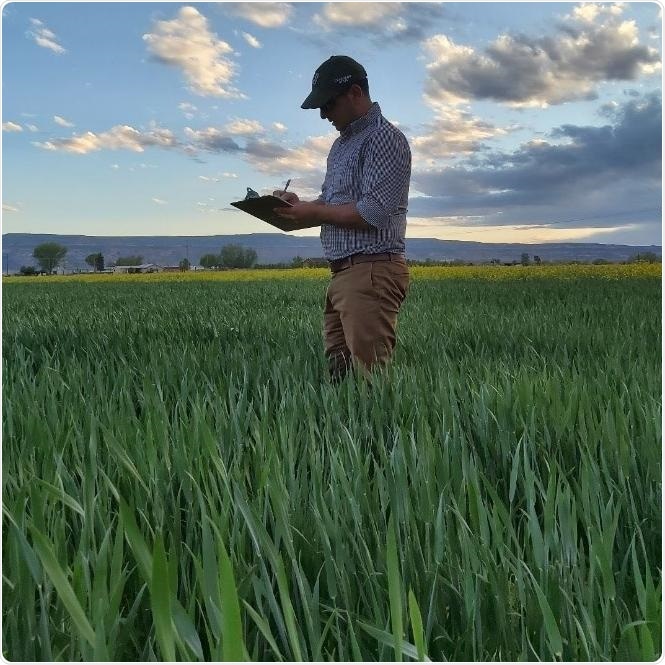Around 17.3% of people around the world are at risk of developing zinc deficiency, which means inadequate intake of zinc. This deficiency is considered a major health concern for humans.

Reza Keshavarz taking note of wheat growth stage. Image Credit: Reza Keshavarz.
A higher concentration of zinc in wheat grains is very significant, and management strategies to improve the concentration of zinc in grains can play a vital role in combating nutrient deficiency.
In a custom called biofortification, scientists use biotechnology, plant breeding, or agronomic practices to boost the macronutrient content in food crops. This strategy is effective to increase the concentration of zinc in wheat grain.
In a recent study, scientists have reported the impact of zinc foliar application on protein, yield, and grain zinc concentration of hard red spring wheat cultivars in Montana’s dryland system.
Plant canopy was sprayed with zinc sulfate at a speed of 1.12 kg of Zn per hectare once (at heading) or twice (at both heading and flowering). The study was recently published in the Agronomy Journal article.
The study outcomes indicate that applying zinc for the second time during the flowering period was essential to produce grains that have zinc levels above the target level of 40 mg/kg, as proposed by the nutritionists.
The application of zinc also slightly enhanced the grain yield, but the increment in yield did not compensate for the costs related to zinc fertilization.
Given the need to produce grain with a higher concentration of zinc, government payments, or cash incentives are required to encourage farmers to implement biofortification.